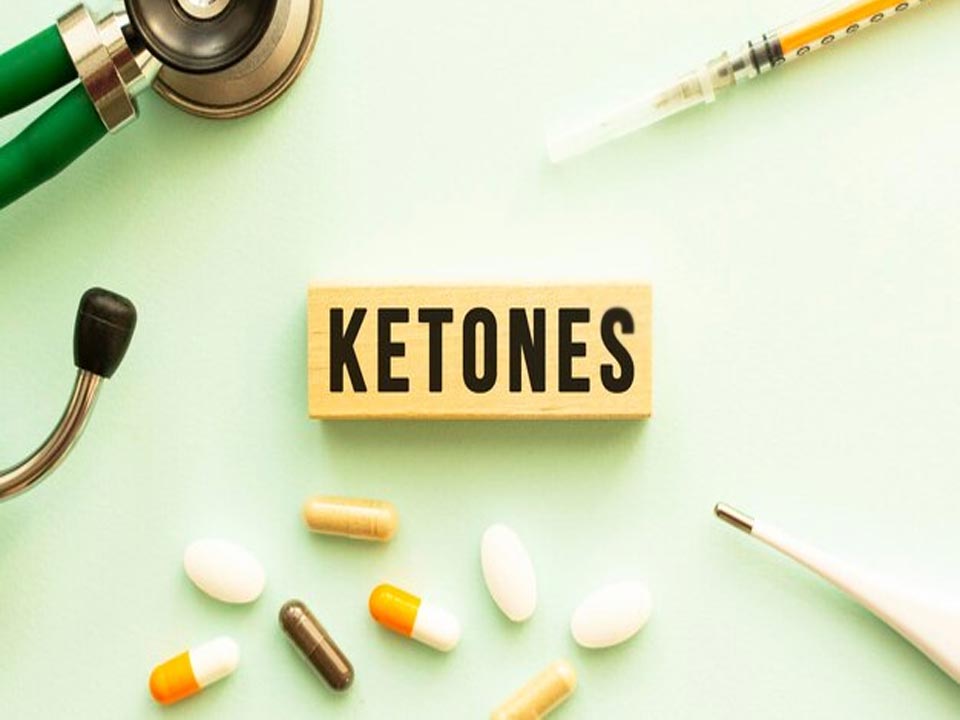The ketogenic diet has taken the health and wellness world by storm, praised for its ability to support weight loss, improve energy levels, and even enhance mental clarity. At the heart of this dietary approach lies an essential concept: ketones. These powerful molecules are the driving force behind the diet’s effectiveness.
In simple terms, ketones are the body’s alternative energy source when carbohydrates are scarce. But what exactly are ketones, and how do they work? Understanding their role can shed light on how the ketogenic diet functions and why it’s so impactful for many people.
In this article, we’ll dive into the science behind ketones and the ketogenic diet, explaining how ketones function in your body, the process of ketosis, and why the ketogenic diet is gaining traction. We’ll also discuss its health benefits, potential risks, and tips for transitioning into ketosis effectively. Whether you’re curious about what ketones are in the body or looking to explore the ketogenic lifestyle, this guide has you covered.
Get ready to uncover how ketones fuel your body and discover whether the ketogenic diet aligns with your health goals!
What Are Ketones?
Ketones are energy molecules produced in the body when fat is broken down for fuel. These molecules, also known as ketone bodies, are an alternative energy source for the brain and body when glucose levels are low. They play a crucial role in metabolic processes, particularly during fasting, low-carb diets, or prolonged exercise.

How Does the Body Produce Ketones?
When carbohydrate intake is significantly reduced, your body turns to stored fat for energy. This triggers the liver to metabolize fatty acids into ketones, which are then released into the bloodstream. This process, known as ketosis, ensures your body and brain have enough energy even in the absence of carbs.
Types of Ketones
There are three main types of ketones:
- Acetoacetate (AcAc): The first ketone produced during fat metabolism.
- Beta-hydroxybutyrate (BHB): The most abundant ketone in the bloodstream and a primary energy source.
- Acetone: A byproduct of AcAc, excreted through breath or urine.
Endogenous vs Exogenous Ketones
- Endogenous Ketones: Naturally produced by the liver when in ketosis.
- Exogenous Ketones: Supplements designed to raise ketone levels artificially, often used to enhance energy or support workouts.
Measuring Ketones
To monitor ketosis and energy levels, ketones can be measured in three ways:
- Blood Tests: The most accurate method, measuring BHB levels in the bloodstream.
- Urine Strips: A quick and cost-effective way to measure AcAc levels in the urine.
- Breath Tests: Detect acetone levels exhaled from the lungs.
Understanding what ketones are in the body and how they function can help you maximize the benefits of the ketogenic diet while maintaining optimal energy levels.
How Does the Ketogenic Diet Work?
The ketogenic diet, often referred to as “keto,” is a low-carbohydrate, high-fat diet with moderate protein intake. Its primary goal is to induce a metabolic state called ketosis, where the body burns fat for energy instead of relying on glucose derived from carbohydrates. This diet has gained significant popularity for its effectiveness in weight loss and potential health benefits.
Principles of the Ketogenic Diet
- Low Carbs: Carbohydrate intake is restricted to about 5-10% of daily calories, typically 20-50 grams per day. This prevents the body from using glucose as its primary energy source.
- High Fat: Fat makes up 70-80% of the diet, providing the majority of calories and ensuring the body has enough fuel for ketosis.
- Moderate Protein: Protein intake is kept at around 10-20% of daily calories to support muscle health without interfering with ketosis.
How Ketosis Is Induced
When carbohydrate intake is drastically reduced, glycogen stores in the liver and muscles are depleted. In response, the body turns to stored fat for energy. The liver metabolizes fatty acids into molecules called ketones, which are released into the bloodstream and used as an alternative energy source.
Ketones: Replacing Glucose as Fuel
In ketosis, ketones become the primary energy source for the body and brain. Unlike glucose, which causes spikes and crashes in energy levels, ketones provide a steady and sustained energy supply. This metabolic shift has been linked to improved focus, enhanced physical endurance, and reduced hunger.
Ketosis and Energy Levels
By relying on fat and ketones instead of glucose, the ketogenic diet helps stabilize energy levels throughout the day. This can lead to fewer energy crashes, improved mental clarity, and increased overall vitality.
Understanding how the ketogenic diet works reveals why it has become a popular choice for those seeking effective weight management and improved energy levels through ketosis.
Benefits of the Ketogenic Diet
The ketogenic diet offers a wide range of benefits beyond just weight loss. By shifting the body’s metabolism to rely on fat and ketones for energy, this diet provides several advantages that support physical health, mental clarity, and improved energy levels.
1. Weight Loss and Fat Burn
One of the most well-known benefits of the ketogenic diet is its ability to promote weight loss. By reducing carbohydrate intake, the body depletes glycogen stores and starts burning fat for fuel. This process not only helps with fat loss but also reduces cravings and stabilizes hunger levels due to the satiating effects of healthy fats.
- Ketones for Weight Loss: Ketones play a crucial role by providing an efficient energy source while promoting the breakdown of stored fat. This metabolic shift enhances the body’s ability to burn fat even during periods of rest.
2. Improved Energy Levels
Ketones provide a steady and sustained energy source, preventing the energy crashes commonly associated with glucose metabolism. This can lead to more consistent physical endurance and reduced fatigue throughout the day.
- Stable Energy Supply: Unlike glucose, ketones do not cause blood sugar spikes and drops, resulting in balanced energy levels and improved stamina.
3. Mental Clarity and Focus
The ketogenic diet is often linked to better brain function. Ketones are a preferred fuel for the brain, offering enhanced mental clarity, improved concentration, and reduced brain fog.
- Neurological Benefits: Ketones protect brain cells and have shown promise in reducing inflammation, which can improve cognitive function over time.
4. Medical Applications
The ketogenic diet was initially developed as a treatment for epilepsy and remains a therapeutic option for individuals with neurological conditions.
- Diabetes Management: By lowering blood sugar levels and improving insulin sensitivity, the diet can benefit individuals with type 2 diabetes.
- Epilepsy and Neurological Disorders: Ketones have been shown to reduce seizure frequency in epileptic patients and may help manage conditions like Alzheimer’s and Parkinson’s disease.
A Versatile Approach to Health
The benefits of the ketogenic diet extend to various aspects of health, from weight management to enhanced mental and physical performance. Whether you’re looking to lose weight, improve energy, or manage specific health conditions, the ketogenic diet’s focus on ketones offers transformative potential.
Risks and Side Effects of the Ketogenic Diet
While the ketogenic diet offers numerous health benefits, it’s essential to understand its potential risks and side effects. Transitioning to a high-fat, low-carb lifestyle can challenge the body initially and may lead to specific health concerns if not monitored carefully.
1. The “Keto Flu”
Many individuals experience flu-like symptoms during the initial phase of the ketogenic diet as the body adjusts to using ketones instead of glucose for energy.
- Symptoms: Fatigue, headache, nausea, dizziness, irritability, and muscle cramps.
- Mitigation: Stay hydrated, replenish electrolytes (sodium, potassium, magnesium), and gradually reduce carbohydrate intake to ease the transition.
2. Nutrient Deficiencies
The restrictive nature of the ketogenic diet may lead to insufficient intake of essential vitamins and minerals.
- Potential Deficiencies: Fiber, B vitamins, calcium, magnesium, and potassium.
- Solution: Incorporate low-carb, nutrient-dense foods like leafy greens, nuts, seeds, and avocados to ensure balanced nutrition.
3. Heart Health Concerns
Consuming high amounts of saturated fats on a ketogenic diet may raise cholesterol levels in some individuals, potentially impacting heart health.
- Monitoring: Regularly check cholesterol and triglyceride levels.
- Recommendation: Prioritize healthy fats, such as those from olive oil, avocados, and fatty fish, over processed and saturated fats.
4. Digestive Issues
Reduced fiber intake can result in constipation or other digestive discomforts.
- Solution: Include fiber-rich, low-carb foods like chia seeds, flaxseeds, and non-starchy vegetables in your diet.
5. Other Risks and Considerations
- Kidney Stress: High protein intake (if not monitored) may strain the kidneys in some individuals.
- Ketoacidosis: Rare but severe in people with type 1 diabetes. Always consult a healthcare provider before starting.
6. Mitigating Risks and Staying Safe
- Gradual Transition: Ease into the diet to minimize side effects.
- Regular Monitoring: Work with a healthcare professional to track vital markers, including cholesterol, blood sugar, and nutrient levels.
- Balanced Approach: Focus on whole, nutrient-dense foods and avoid processed, high-fat options.
The risks of the ketogenic diet can be minimized with proper planning and medical supervision. Understanding what ketones are in the body and their role in metabolism can help you adopt this lifestyle safely while reaping its benefits.
Foods for a Ketogenic Diet
Adopting the ketogenic diet requires understanding which foods align with its principles: low carbs, high fat, and moderate protein. Selecting the right ingredients ensures you stay in ketosis and reap the diet’s benefits.

1. Keto-Friendly Food Categories
Here’s a breakdown of foods that work best for a ketogenic lifestyle:
- Proteins: Focus on high-quality sources like grass-fed beef, poultry, pork, lamb, eggs, and seafood (e.g., salmon, mackerel, and sardines).
- Healthy Fats: Incorporate fats from avocados, olive oil, coconut oil, butter, ghee, nuts, and seeds (e.g., chia and flaxseeds).
- Low-Carb Vegetables: Choose non-starchy options such as spinach, kale, broccoli, cauliflower, zucchini, bell peppers, and asparagus.
- Dairy Products: Include full-fat options like cheese, cream, and unsweetened Greek yogurt (in moderation).
- Other Staples: Use keto-friendly items like almond flour, coconut flour, and sugar substitutes (e.g., stevia or monk fruit sweetener).
2. Foods to Avoid
To stay in ketosis, limit:
- High-Carb Foods: Bread, pasta, rice, and potatoes.
- Sugary Foods: Desserts, candies, and sweetened drinks.
- Processed Foods: Packaged snacks, fast food, and trans-fat-rich items.
3. Keto Meal Ideas
Here are some meal suggestions to inspire your ketogenic diet:
- Breakfast: Scrambled eggs with spinach and avocado; a chia seed pudding made with unsweetened almond milk.
- Lunch: Grilled chicken salad with olive oil dressing and feta cheese.
- Dinner: Pan-seared salmon with sautéed asparagus and a side of cauliflower mash.
- Snacks: Hard-boiled eggs, cheese cubes, or a handful of nuts.
4. Tips for Staying in Ketosis
- Meal Prep: Plan meals to avoid unintentional carb intake.
- Track Macros: Use apps to monitor carb, fat, and protein ratios.
- Hydration: Drink water and replenish electrolytes.
By focusing on foods for a ketogenic diet that are nutrient-dense and low in carbs, you can maintain ketosis, support energy levels, and achieve your health goals. Combined with understanding how the ketogenic diet works, proper food choices are the foundation of success.
Measuring Ketones and Staying in Ketosis
Monitoring your ketone levels is key to ensuring your body is in ketosis, the state where fat becomes the primary energy source. Here’s how to measure ketones effectively and maintain ketosis.
How to Measure Ketones
- Urine Strips:
- Easy and affordable, urine strips detect excess ketones in your urine.
- Ideal for beginners, but results may become less reliable as your body adapts to ketosis.
- Blood Tests:
- Blood ketone meters provide accurate readings of beta-hydroxybutyrate (BHB), a primary ketone.
- They’re the most reliable method but require finger pricks and test strips.
- Breath Analyzers:
- Measure acetone levels in your breath, another byproduct of ketosis.
- Non-invasive and reusable, but less precise compared to blood tests.
Tips to Maintain Ketosis
- Stay Consistent with Macros: Keep your daily carb intake under 20-50 grams and prioritize healthy fats and moderate protein.
- Hydrate and Replenish Electrolytes: Drink plenty of water and consume electrolytes like sodium, potassium, and magnesium to support energy levels.
- Exercise Regularly: Engage in low-intensity workouts like walking or cycling to help burn fat and produce ketones.
- Monitor Progress: Use the above tools regularly to track your ketone levels and adjust your diet as needed.
By understanding how to measure ketones and following these tips, you can ensure your body remains in ketosis, maximizing the energy and health benefits of the ketogenic diet.
FAQs
What Are Ketones, and How Do They Work?
Ketones are energy molecules produced by the liver when your body breaks down fat for fuel. This happens when carbohydrate intake is low, forcing the body to rely on fat as its primary energy source. Ketones provide energy to the brain, muscles, and other organs, making them essential during ketosis.
How Long Does It Take to Reach Ketosis?
Reaching ketosis typically takes 2-4 days of following a strict low-carb diet (less than 20-50 grams of carbs per day). However, individual factors like activity level, metabolism, and prior dietary habits can influence the time it takes. Regular ketone testing can help confirm when your body has entered ketosis.
Can Anyone Follow a Ketogenic Diet?
While the ketogenic diet offers numerous benefits, it’s not suitable for everyone. Individuals with certain health conditions, such as pancreatic or liver issues, should avoid it. Pregnant or breastfeeding women, as well as those with a history of eating disorders, should consult a healthcare provider before starting. For most people, the diet is safe if approached thoughtfully, but awareness of the risks of the ketogenic diet is essential.
These answers help clarify the basics of ketosis and the ketogenic diet, supporting informed decision-making for those considering this lifestyle change.
Conclusion
Ketones are at the core of the ketogenic diet, providing the body with an alternative energy source when carbs are limited. This metabolic shift, known as ketosis, offers several benefits, from enhanced fat burning and improved mental focus to potential therapeutic effects for certain medical conditions.
However, the ketogenic diet isn’t without its challenges. While the benefits of the ketogenic diet are widely praised, it’s crucial to consider potential risks such as nutrient deficiencies, the “keto flu,” and its unsuitability for individuals with certain health conditions. Maintaining a balanced, well-planned approach to keto can help minimize these risks.
If you’re curious about how ketones and the ketogenic diet can support your health goals, remember that every body is unique. Consulting a healthcare professional before starting the diet is essential to ensure it’s safe and effective for your individual needs. With the right guidance, keto could be a powerful tool for your health journey.

